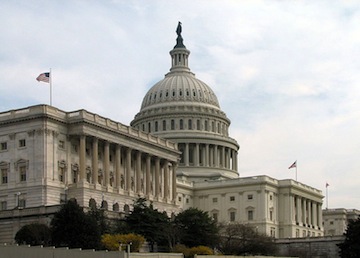Infrastructure Bill Allows FCC, NTIA To Define 'Reliable' Broadband
Could include 'other criteria' in addition to speed and quality

The smarter way to stay on top of the multichannel video marketplace. Sign up below.
You are now subscribed
Your newsletter sign-up was successful
An infrastructure bill with tens of billions for broadband appears both poised for a Senate vote and without the Biden Administration's explicit focus on affordability or competition as part of the definition of broadband availability. But the bill's language would appear to allow for determinations of "reliable" broadband that could include more than just sufficient speeds and quality.
According to the bill language, the ‘Infrastructure Investment and Jobs Act" would include about $42.5 billion in grants as part of a "‘Broadband Equity, Access, and Deployment Program" to close the digital divide, with a priority on rural and low income unserved and underserved areas.
The money will be tied to better maps of where those unserved and underserved areas are and there is a challenge process for ISPs or anyone else disputing whether an area is actually unserved or underserved.
But while the Biden Administration has been signaling it thinks that affordability should be part of the definition of whether broadband is actually available, the definition of "unserved area" in the bill is where less than 80% of the population has no access to broadband at all or no access to "reliable" broadband, which it defines as speeds of less than 25 Mbps download/3 Mbps upload (the FCC's current floor for its definition of "high speed") and latency "sufficient to support real-time, interactive applications."
Underserved is defined as areas where at least 80% of the population has access to speeds under 100 Mbps download/20 Mbps upload speeds and sufficient latency.
There is no mention of affordability, but there is a catch. The definition of "Reliable Broadband Service" is defined as "broadband service that meets performance criteria for service availability, adaptability to 11 changing end-user requirements, length of serviceable life, or other criteria, other than upload and download speeds, as determined by the Assistant Secretary [the head of the National Telecommunications & Information Administration) in coordination with the Commission [the FCC]."
That "or other criteria" would appear to allow the Biden-appointed heads of both agencies to add price and competition into the broadband availability equation, much to the displeasure of ISPs.
Utah Republican Senator Mitt Romney issued a defense of the broadband spending in the bill. "I think we can agree broadband ought to be available to all Americans whether in rural areas or low-income areas," he said. "Kids need to be able to connect to their schools and get their assignments and follow what's going on in the world through the media, through the internet. People need to be able to use telehealth to get consults with doctors. If we're going to have economic growth in our urban areas or rural parts of our country, we need to have businesses know they have access to high-speed internet or they simply won't go there."
The smarter way to stay on top of the multichannel video marketplace. Sign up below.
Contributing editor John Eggerton has been an editor and/or writer on media regulation, legislation and policy for over four decades, including covering the FCC, FTC, Congress, the major media trade associations, and the federal courts. In addition to Multichannel News and Broadcasting + Cable, his work has appeared in Radio World, TV Technology, TV Fax, This Week in Consumer Electronics, Variety and the Encyclopedia Britannica.

